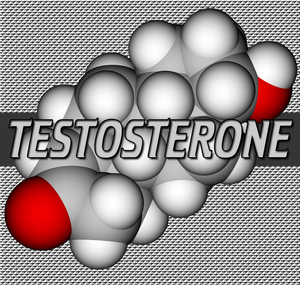Introduction
Chronic stress is a pervasive issue in modern society, affecting various aspects of health and well-being. Among American males, one of the less discussed yet significant impacts of chronic stress is on penile function. This article delves into a comprehensive review of a study involving over 8,000 participants, exploring the intricate relationship between stress levels and penile health. By understanding these connections, healthcare providers and individuals can better address and mitigate the effects of stress on sexual health.
Study Overview and Methodology
The study in question analyzed data from over 8,000 American males, ranging in age from 18 to 70 years. Participants were assessed for their stress levels using validated psychological scales, such as the Perceived Stress Scale (PSS) and the Stress Overload Scale (SOS). Additionally, penile function was evaluated through self-reported measures and clinical assessments, including the International Index of Erectile Function (IIEF). This large sample size allowed for robust statistical analysis and meaningful insights into the correlation between chronic stress and penile function.
Findings on Chronic Stress and Penile Function
The study's findings were striking: a significant association was observed between high levels of chronic stress and diminished penile function. Participants reporting higher stress scores on the PSS and SOS scales were more likely to experience erectile dysfunction (ED) and other sexual health issues. Specifically, the data indicated that men with the highest stress levels were 2.5 times more likely to report severe ED compared to those with the lowest stress levels. This correlation underscores the need for stress management as a critical component of sexual health care.
Physiological Mechanisms Linking Stress and Penile Dysfunction
The physiological mechanisms by which chronic stress impacts penile function are multifaceted. Chronic stress leads to sustained elevations in cortisol, a stress hormone that can disrupt the delicate balance of neurotransmitters and hormones necessary for normal sexual function. Elevated cortisol levels can impair the nitric oxide pathway, crucial for achieving and maintaining erections. Furthermore, chronic stress can contribute to systemic inflammation and vascular dysfunction, both of which are known risk factors for ED. Understanding these mechanisms is vital for developing targeted interventions to mitigate the impact of stress on penile health.
Psychological and Lifestyle Factors
Beyond the physiological effects, chronic stress can also influence penile function through psychological and lifestyle factors. Stress often leads to anxiety and depression, which can further exacerbate sexual dysfunction. Additionally, stressed individuals may engage in unhealthy coping behaviors such as excessive alcohol consumption, smoking, and poor dietary habits, all of which are known to negatively affect penile health. Addressing these psychological and lifestyle factors is essential for a holistic approach to managing stress-related penile dysfunction.
Interventions and Management Strategies
Effective management of chronic stress is crucial for preserving penile function. The study recommends a multifaceted approach, including cognitive-behavioral therapy (CBT) to address psychological aspects of stress, mindfulness and relaxation techniques to reduce stress levels, and lifestyle modifications such as regular exercise and a balanced diet. For those with severe stress-related ED, medical interventions such as phosphodiesterase type 5 inhibitors (PDE5 inhibitors) may be necessary. However, the primary focus should be on stress reduction and overall well-being.
Conclusion
The comprehensive study of over 8,000 American males provides compelling evidence of the detrimental impact of chronic stress on penile function. By understanding the physiological, psychological, and lifestyle factors at play, healthcare providers can better support their patients in managing stress and preserving sexual health. As chronic stress continues to be a prevalent issue, it is imperative that both individuals and healthcare professionals prioritize stress management as a key component of comprehensive health care.
References
1. Cohen, S., Kamarck, T., & Mermelstein, R. (1983). A global measure of perceived stress. Journal of Health and Social Behavior, 24(4), 385-396.
2. Amirkhan, J. H. (2012). Stress Overload: A New Approach to the Assessment of Stress. American Journal of Community Psychology, 49(1-2), 55-71.
3. Rosen, R. C., et al. (1997). The International Index of Erectile Function (IIEF): A multidimensional scale for assessment of erectile dysfunction. Urology, 49(6), 822-830.
Contact Us Today For A Free Consultation

- Understanding the Psychological Toll of Penile Health Issues on American Men [Last Updated On: March 10th, 2025] [Originally Added On: March 10th, 2025]
- Managing Penile Skin Conditions: Symptoms, Treatments, and Psychological Support for American Males [Last Updated On: March 13th, 2025] [Originally Added On: March 13th, 2025]
- Genetics of Penile Development: Insights into Male Reproductive Health [Last Updated On: March 18th, 2025] [Originally Added On: March 18th, 2025]
- Penile Enlargement: Safety, Efficacy, and Informed Decision-Making in American Males [Last Updated On: March 18th, 2025] [Originally Added On: March 18th, 2025]
- Medications and Male Sexual Health: Impacts on Penile Function in American Males [Last Updated On: March 18th, 2025] [Originally Added On: March 18th, 2025]
- Penile Nerve Blocks: Enhancing Pain Management and Surgery for American Males [Last Updated On: March 19th, 2025] [Originally Added On: March 19th, 2025]
- Obesity's Impact on Penile Function: Physiological, Hormonal, and Psychological Insights [Last Updated On: March 20th, 2025] [Originally Added On: March 20th, 2025]
- Understanding Penile Trauma: Types, Emergency Care, and Long-term Management Strategies [Last Updated On: March 20th, 2025] [Originally Added On: March 20th, 2025]
- Penile MRI: Revolutionizing Diagnosis of Male Sexual Health Conditions [Last Updated On: March 20th, 2025] [Originally Added On: March 20th, 2025]
- Testosterone's Crucial Role in Penile Health and Function: A Comprehensive Overview [Last Updated On: March 21st, 2025] [Originally Added On: March 21st, 2025]
- Advancements in Penile Prostheses: Restoring Function and Enhancing Quality of Life [Last Updated On: March 21st, 2025] [Originally Added On: March 21st, 2025]
- Optimal Penile Hygiene Practices for American Males: A Comprehensive Guide [Last Updated On: March 21st, 2025] [Originally Added On: March 21st, 2025]
- Lifestyle Choices and Their Impact on Penile Health in American Males [Last Updated On: March 21st, 2025] [Originally Added On: March 21st, 2025]
- Penile Vascular Health: Understanding, Diagnosing, and Managing for American Males [Last Updated On: March 22nd, 2025] [Originally Added On: March 22nd, 2025]
- Penile Ulcers: Causes, Diagnosis, and Treatment for American Males [Last Updated On: March 22nd, 2025] [Originally Added On: March 22nd, 2025]
- Penile Reconstruction: Techniques, Outcomes, and Future in American Males [Last Updated On: March 22nd, 2025] [Originally Added On: March 22nd, 2025]
- Penile Biopsy: Diagnosing Urological Conditions in American Males [Last Updated On: March 23rd, 2025] [Originally Added On: March 23rd, 2025]
- Understanding Penile Numbness: Causes, Diagnosis, and Treatment Options for American Males [Last Updated On: March 23rd, 2025] [Originally Added On: March 23rd, 2025]
- Penile Skin Grafts: Indications, Procedures, and Outcomes for American Males [Last Updated On: March 24th, 2025] [Originally Added On: March 24th, 2025]
- Spinal Cord Injuries: Impact on Penile Function and Treatment Advances [Last Updated On: March 24th, 2025] [Originally Added On: March 24th, 2025]
- Penile Lymphatic System: Functions, Disorders, and Health Maintenance for American Males [Last Updated On: March 24th, 2025] [Originally Added On: March 24th, 2025]
- Understanding and Managing Penile Swelling: A Guide for American Males [Last Updated On: March 24th, 2025] [Originally Added On: March 24th, 2025]
- Penile Ultrasound: Diagnosing Sexual Dysfunction in American Males [Last Updated On: March 24th, 2025] [Originally Added On: March 24th, 2025]
- Penile Blood Tests: Diagnosing Systemic Health in Men [Last Updated On: March 25th, 2025] [Originally Added On: March 25th, 2025]
- Penile Sensory Neuropathy: Symptoms, Diagnosis, and Management Strategies in Penis Science [Last Updated On: March 25th, 2025] [Originally Added On: March 25th, 2025]
- Radiation Therapy's Impact on Penile Health: Effects and Management for American Males [Last Updated On: March 25th, 2025] [Originally Added On: March 25th, 2025]
- Understanding Penile Rashes: Types, Causes, Treatments, and Prevention Strategies [Last Updated On: March 25th, 2025] [Originally Added On: March 25th, 2025]
- Penile Arteries: Key to Erection Health and Cardiovascular Wellness in American Males [Last Updated On: March 25th, 2025] [Originally Added On: March 25th, 2025]
- Chronic Diseases and Penile Health: Impacts and Management for American Males [Last Updated On: March 25th, 2025] [Originally Added On: March 25th, 2025]
- Penile Girth's Impact on Sexual Satisfaction: Medical Insights and Enhancement Options [Last Updated On: March 25th, 2025] [Originally Added On: March 25th, 2025]
- Understanding Penile Discharge: Causes, Symptoms, and Treatment Options for American Males [Last Updated On: March 25th, 2025] [Originally Added On: March 25th, 2025]
- Understanding Penile Warts: Causes, Symptoms, and Treatment Options for American Males [Last Updated On: March 26th, 2025] [Originally Added On: March 26th, 2025]
- Understanding Penile Veins: Anatomy, Function, and Common Disorders in American Males [Last Updated On: March 26th, 2025] [Originally Added On: March 26th, 2025]
- Chemotherapy's Impact on Penile Health: Insights for American Males [Last Updated On: March 26th, 2025] [Originally Added On: March 26th, 2025]
- Understanding and Managing Penile Allergies: Symptoms, Diagnosis, and Strategies [Last Updated On: March 26th, 2025] [Originally Added On: March 26th, 2025]
- Understanding Penile Edema: Causes, Diagnosis, and Treatment for American Males [Last Updated On: March 26th, 2025] [Originally Added On: March 26th, 2025]
- Understanding and Managing Penile Pain: Causes, Diagnosis, and Relief for American Males [Last Updated On: March 26th, 2025] [Originally Added On: March 26th, 2025]
- Understanding Penile Lesions: Types, Causes, and Effective Treatments for American Males [Last Updated On: March 26th, 2025] [Originally Added On: March 26th, 2025]
- Hormonal Imbalances and Their Impact on Male Penile Health: A Comprehensive Guide [Last Updated On: March 26th, 2025] [Originally Added On: March 26th, 2025]
- Penile Prosthetics: A Comprehensive Guide for Treating Severe ED in American Males [Last Updated On: March 27th, 2025] [Originally Added On: March 27th, 2025]
- Penile Nerve Anatomy: Impact on Sexual Health and Function in American Men [Last Updated On: March 27th, 2025] [Originally Added On: March 27th, 2025]
- Dietary Impact on Penile Health: Key Nutrients and Eating Patterns for American Men [Last Updated On: March 27th, 2025] [Originally Added On: March 27th, 2025]
- Understanding Penile Discoloration: Causes, Symptoms, and Treatment Options for American Males [Last Updated On: March 27th, 2025] [Originally Added On: March 27th, 2025]
- Neurological Disorders and Penile Function: Impact and Management for American Males [Last Updated On: March 27th, 2025] [Originally Added On: March 27th, 2025]
- Managing Penile Itching: Causes, Symptoms, and Effective Treatments for American Men [Last Updated On: March 28th, 2025] [Originally Added On: March 28th, 2025]
- Penile Health: Impact on Physical and Psychological Well-being in American Males [Last Updated On: March 28th, 2025] [Originally Added On: March 28th, 2025]
- Understanding Penile Bleeding: Causes, Symptoms, and Emergency Care for American Males [Last Updated On: March 28th, 2025] [Originally Added On: March 28th, 2025]
- Penile Piercings: Health Risks, Types, and Medical Advice for American Males [Last Updated On: March 28th, 2025] [Originally Added On: March 28th, 2025]
- Penile Sensitivity: Impact on Male Sexual Health and Function [Last Updated On: March 29th, 2025] [Originally Added On: March 29th, 2025]
- Understanding Penile Lumps: Types, Causes, and Management for American Males [Last Updated On: March 29th, 2025] [Originally Added On: March 29th, 2025]
- Penile Health and Fertility: Insights and Management for American Males [Last Updated On: March 30th, 2025] [Originally Added On: March 30th, 2025]
- Penile Injuries: Impact on Sexual Health and Management Strategies for American Males [Last Updated On: March 30th, 2025] [Originally Added On: March 30th, 2025]
- Understanding Penile Sores: Causes, Symptoms, and Treatments for American Males [Last Updated On: March 30th, 2025] [Originally Added On: March 30th, 2025]
- Understanding and Treating Penile Redness in American Males: Causes, Symptoms, Solutions [Last Updated On: April 2nd, 2025] [Originally Added On: April 2nd, 2025]
- Penile Dermatitis: Symptoms, Causes, and Treatment Options for American Males [Last Updated On: April 3rd, 2025] [Originally Added On: April 3rd, 2025]
- Penile Health: Enhancing Sexual Wellness and Partner Satisfaction in American Males [Last Updated On: April 4th, 2025] [Originally Added On: April 4th, 2025]
- Penile Health and Mental Well-being: A Holistic Approach for American Males [Last Updated On: April 5th, 2025] [Originally Added On: April 5th, 2025]
- Causes, Diagnosis, and Management of Penile Burning in American Males [Last Updated On: April 5th, 2025] [Originally Added On: April 5th, 2025]
- Penile Health's Impact on Urinary Function: Insights and Care for American Males [Last Updated On: April 7th, 2025] [Originally Added On: April 7th, 2025]
- Managing Penile Dryness: Causes, Symptoms, and Effective Dermatological Treatments [Last Updated On: April 8th, 2025] [Originally Added On: April 8th, 2025]
- Penile Health and STI Prevention: A Comprehensive Guide for American Males [Last Updated On: April 8th, 2025] [Originally Added On: April 8th, 2025]
- Understanding Penile Blisters: Causes, Symptoms, and Effective Management Strategies [Last Updated On: April 9th, 2025] [Originally Added On: April 9th, 2025]
- Penile Health and Hormonal Balance: Insights for American Males [Last Updated On: April 11th, 2025] [Originally Added On: April 11th, 2025]
- Penile Health's Impact on Prostate Wellness: A Guide for American Males [Last Updated On: April 12th, 2025] [Originally Added On: April 12th, 2025]
- Understanding and Managing Penile Sensitivity Disorders in American Males [Last Updated On: April 12th, 2025] [Originally Added On: April 12th, 2025]
- Penile Health and Fertility: Insights and Strategies for American Males [Last Updated On: April 13th, 2025] [Originally Added On: April 13th, 2025]
- Understanding Penile Foreskin Health: Causes, Symptoms, and Medical Interventions [Last Updated On: April 13th, 2025] [Originally Added On: April 13th, 2025]
- Managing Penile Odor: Causes, Symptoms, and Effective Treatment Strategies for Men [Last Updated On: April 13th, 2025] [Originally Added On: April 13th, 2025]
- Penile Health as a Cardiovascular Indicator: Study Insights and Preventive Measures [Last Updated On: April 14th, 2025] [Originally Added On: April 14th, 2025]
- Penile Health and Sexual Function: Insights for American Males [Last Updated On: April 15th, 2025] [Originally Added On: April 15th, 2025]
- Penile Health and Immune System: A Vital Connection for American Males [Last Updated On: April 16th, 2025] [Originally Added On: April 16th, 2025]
- Exploring the Link Between Penile and Musculoskeletal Health in American Males [Last Updated On: April 17th, 2025] [Originally Added On: April 17th, 2025]
- Penile Health and Respiratory Wellness: Interconnected Systems in American Males [Last Updated On: April 18th, 2025] [Originally Added On: April 18th, 2025]
- Managing Penile Irritation: Causes, Symptoms, and Dermatological Treatments for American Males [Last Updated On: April 18th, 2025] [Originally Added On: April 18th, 2025]
- Aging and Penile Sensitivity: Impacts and Management for American Males [Last Updated On: April 18th, 2025] [Originally Added On: April 18th, 2025]
- Penile Sensitivity and Neurological Health: Insights for American Males [Last Updated On: April 18th, 2025] [Originally Added On: April 18th, 2025]
- Penile Health and Endocrine Disorders: Causes, Symptoms, and Management Strategies [Last Updated On: April 19th, 2025] [Originally Added On: April 19th, 2025]
- Kidney Function and Penile Health: Insights and Implications for American Males [Last Updated On: April 20th, 2025] [Originally Added On: April 20th, 2025]
- Penile Health Linked to Gastrointestinal Wellness: Insights for American Males [Last Updated On: April 20th, 2025] [Originally Added On: April 20th, 2025]
- Penile Health: Understanding Conditions and Advanced Treatments for American Males [Last Updated On: April 21st, 2025] [Originally Added On: April 21st, 2025]
Word Count: 649




















